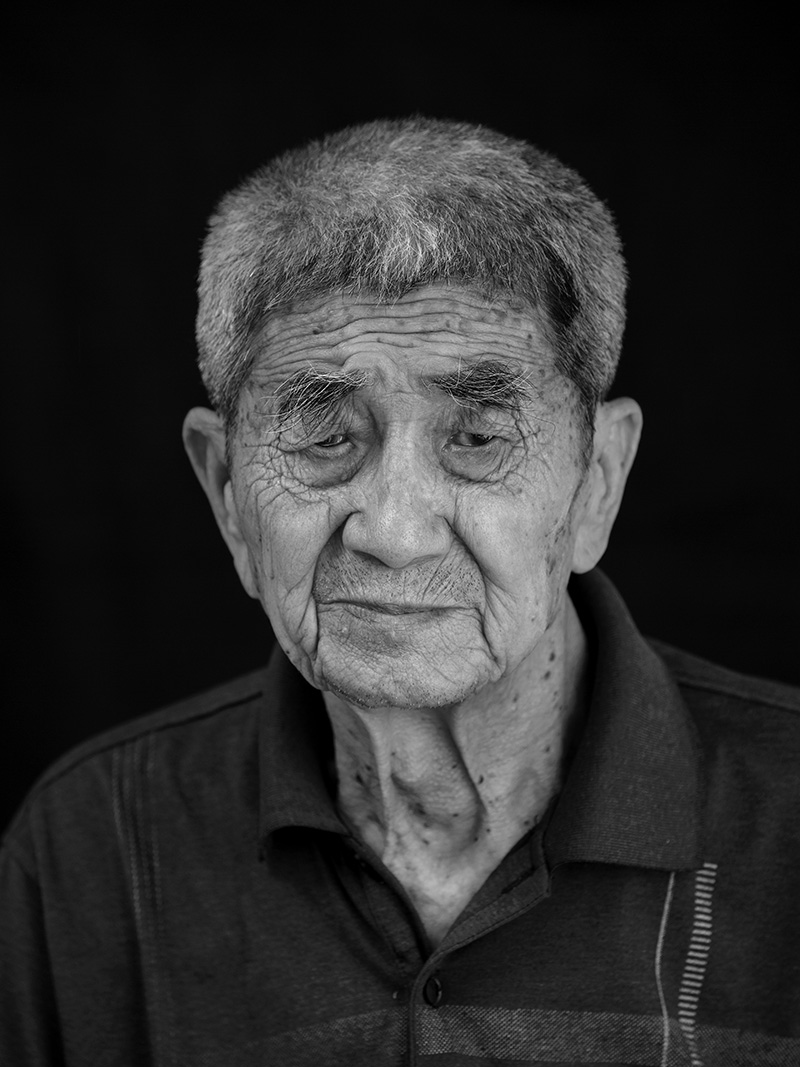Wang Jin, Zhang Shixiang, Yuan Guilong, Chang Zhiqiang, and Ma Tinglu, Survivors of the Nanjing Massacre, Died Only 49 Survivors of the Nanjing Massacre Remained as of January 6, 2023
In the past month, five survivors of the Nanjing Massacre left us. They were Wang Jin, Zhang Shixiang, Yuan Guilong, Chang Zhiqiang, and Ma Tinglu. As of January 1, 2023, there are only 49 survivors registered by the Nanjing Aid Association for the Victims of Atrocities by Japanese Invaders remained.
Wang Jin was born in September 1931. Her family lived at No. 676 South Zhenzhu Alley, Nanjing. They made a living by selling stuff. After capturing the city on December 13, 1937, the Japanese troops broke into people’s homes. Wang’s father and their neighbor Liu Zhiqing were captured and ordered to work in the kitchen of the Japanese military. Wang’s father was asked to peel the green Chinese onions while Liu’s job was to carry water. One afternoon, a Japanese soldier got drunk and entered the kitchen. Seeing him, many of the arrested men kowtowed and bowed to him. Wang’s father, busy peeling the green Chinese onion, didn’t. The Japanese soldier got very angry. He drew his sword, stabbed Wang’s father seven times, and dragged him into a cave. One month later, Liu returned safely but Wang’s father didn’t.
The Japanese troops burned down Wang’s house. At night, Wang and her mother could only sleep in the vegetable ditch. They set up a shed with their doorframe, bench and table. To get to the vegetable ditch, Wang needed to crawl over the corpses of many people killed by the Japanese troops. The situation continued for more than ten days before they built a simple thatched cottage on the ruins of their original house.
Wang passed away on December 24, 2022 at the age of 91.
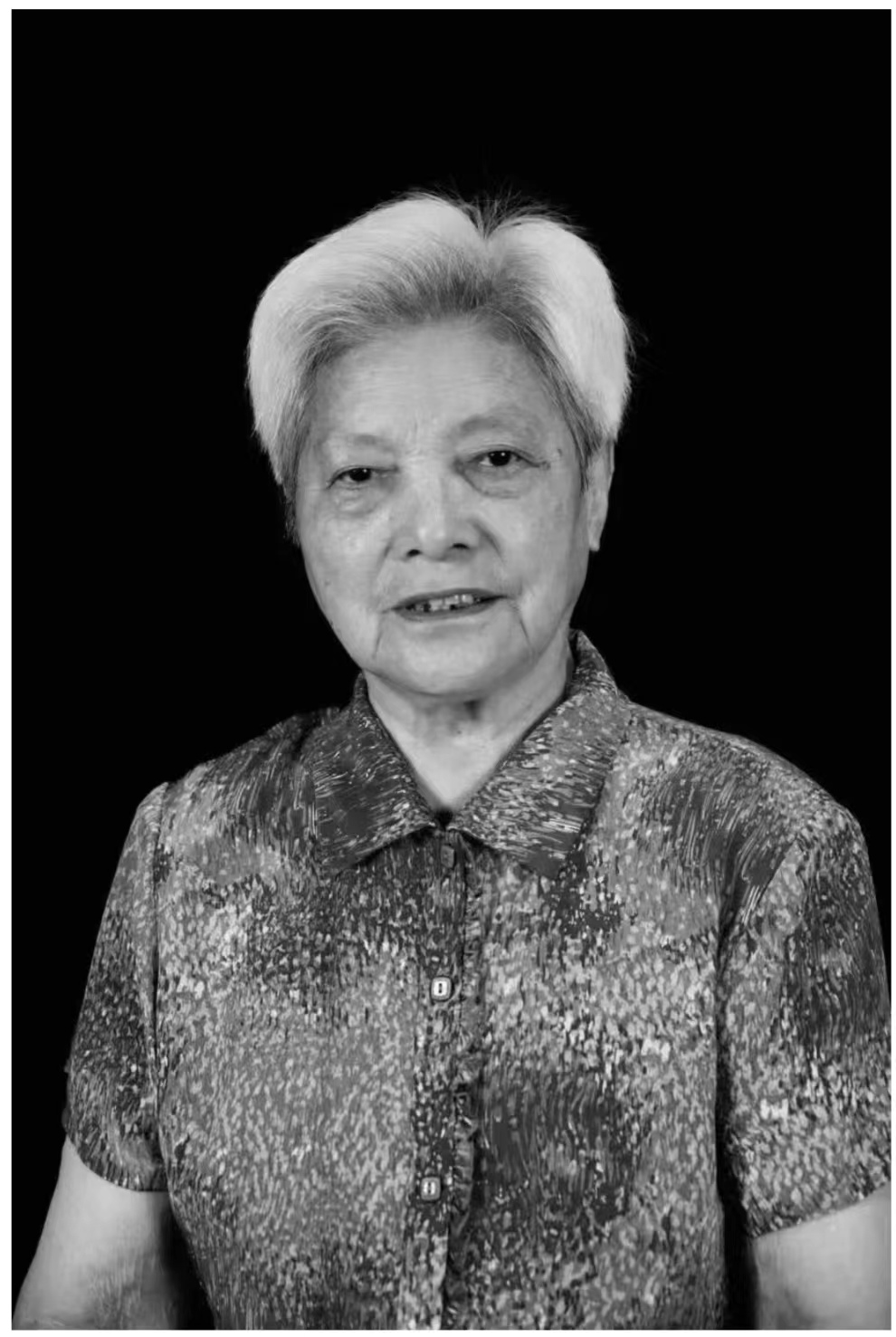
Zhang Shixiang was born in October 1930. After Nanjing was captured, his family fled to the refugee camp for shelter. “There were so many refugees at the refugee camp that we could hardly find a spot. We could only sleep on the cold floor at night,” Zhang recalled. Later, Zhang’s father took the whole family to the home of a good friend of his. They were told not to go out or speak loudly, but to stay in the house all day long. Zhang’s mother was so scared that she always hid in a cabinet. She didn’t settle until one or two months later.
Zhang passed away on December 27, 2022 at the age of 92.
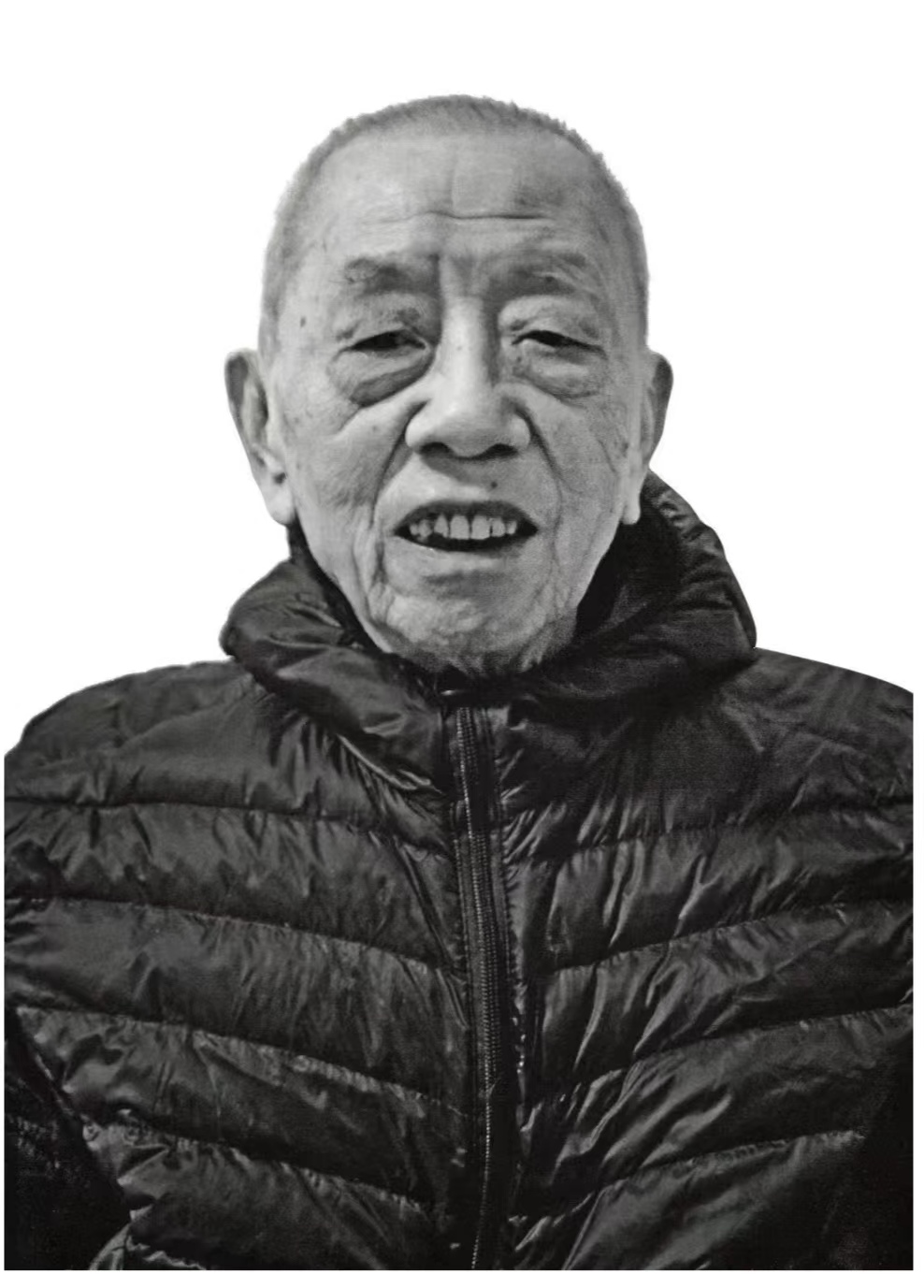
Yuan Guilong was born in April 1934. After Nanjing was captured, Yuan’s father and uncle were killed by the Japanese troops, who also burned down about a dozen of their tile-roofed houses and thatched cottages. “My father Yuan Defu was taken to the Wangzhuang Village north of my home. The Japanese soldiers tied my father to a tree with rope. They lined up, each holding a bayonet in their hand, to stab my father one by one. Bleeding heavily from the stabs, my father died in misery,” Yuan recalled. As for Yuan’s uncle Yuan Dehong, who was also killed by the Japanese troops, they didn’t even find his corpse in the end. “My grandparents survived the fire. But they were overwhelmed by the pain of losing their two sons and their home. Life became hopeless for them. They got blind and soon died of illness.” Later, Yuan became a teacher and stayed on in the post for 38 years. “I want to teach my students and offspring to remember the miserable history for Chinese people. I will encourage them to work hard for the rise of China, not to repeat the tragedy of history with concrete action, and build our country well!”
Yuan passed away on December 28, 2022 at the age of 88.
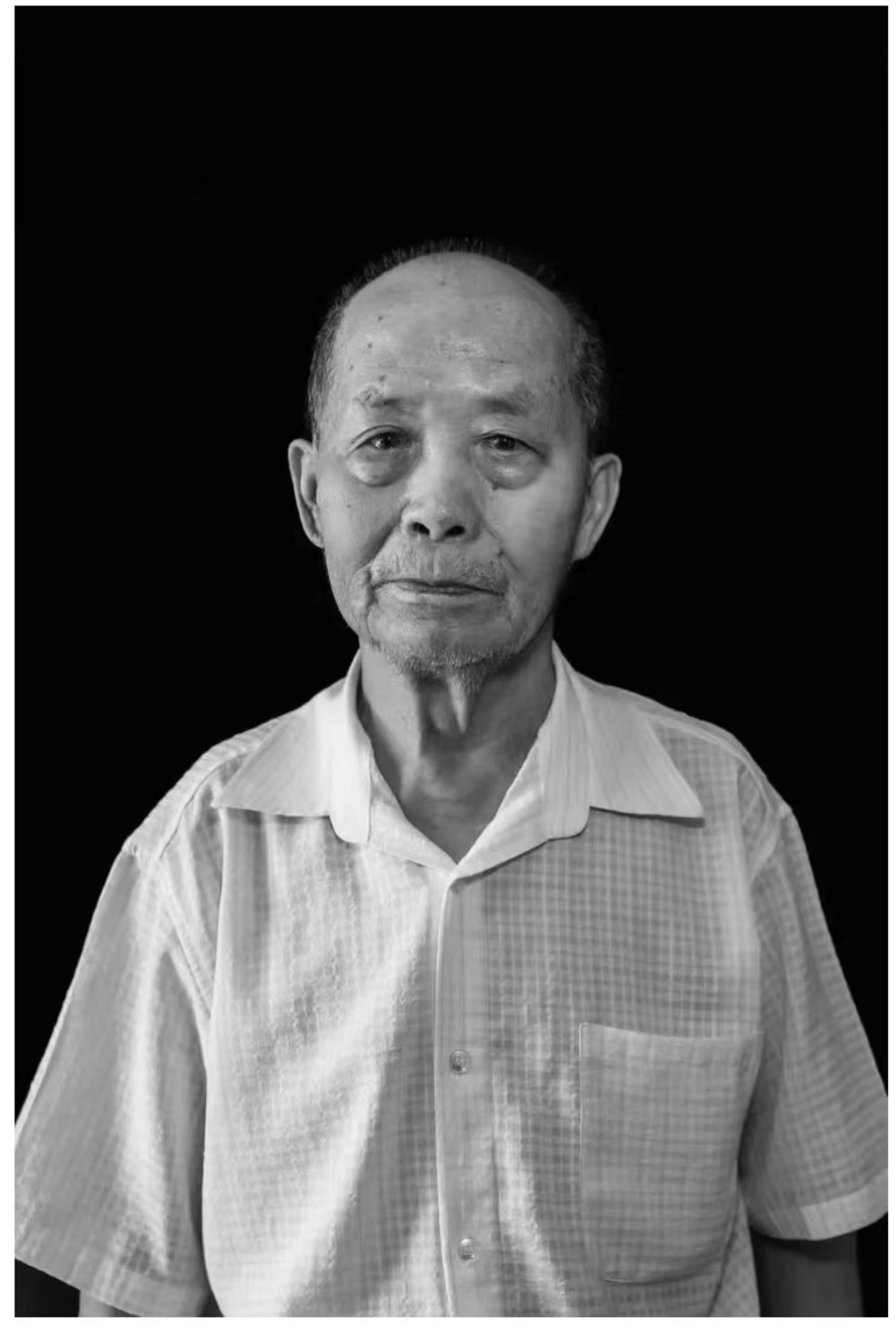
Chang Zhiqiang was born in February 1928. He lived with his great-grandmother, grandmother, parents, elder sister, and four younger brothers at No. 1 Babao Street, Nanjing. When he was young, Chang was clever and loved by the elders. His father often carried him on his shoulders and took him to watch acrobatic performances at the Confucius Temple, and bought snacks for him. But the happy life ended on December 13, 1937.
After Nanjing was captured, the 10-person family tried to run to the refugee camp. “By then the Japanese troops had broken in. My mother was holding my younger brother in her arms. At first, she was stabbed in the chest, but still held my brother firmly. Then with another stab, my mother fell to the ground, with blood flowing from her chest. My younger brother, who dropped to the ground, cried and crawled to my mother to suck the breast. I immediately took him to my mother. She was severely injured and already couldn’t talk, but still insisted nursing my younger brother. Suddenly, a Japanese soldier stabbed my younger brother in his hips and threw him far. Then my father was shot to death by them. I was so frightened that I fainted,” Chang recalled. The experience of seeing his mother and younger brother be stabbed to death by the Japanese troops often made him want to burst into tears.
That was the darkest day in Chang’s life. Not long after his father, mother and four younger brothers were cruelly killed by the Japanese troops, his sister died in a plague. From then, Chang became an orphan.
Later, Chang was introduced to work as an odd-jobman at the Central Chemical Plant then being built. He became a technician step by step before being in charge of equipment management of the entire plant. Several years later, Chang got married and had four children.
On August 15, 1985, the Memorial Hall was open to the public. At first, Chang wanted to visit the Memorial Hall, but gave up somehow. One day in 1997, Chang learned on TV that Japanese right-wing forces denied the Nanjing Massacre committed by Japanese invaders. He got so furious at the news that he didn’t sleep that night. The next day, he brought a record of his memory during the Nanjing Massacre to the Memorial Hall.
In December 2005, Chang attended survivor testimony assemblies and exchanges on peace in Nagasaki, Okayama, and Kumamoto of Japan. In 2015, Chang took part in a panel discussion on “Nanjing: The Power of Survivors’ Stories and Why Capturing them Matters” held by the University of Southern California (USC) Shoah Foundation during the USC Global Conference 2015, and filmed a documentary about the Nanjing Massacre by the USC Shoah Foundation, which was called “Two Sides of Survival.”
Chang dedicated his whole life to telling the truth about the Nanjing Massacre. He passed away on December 29, 2022 at the age of 94.
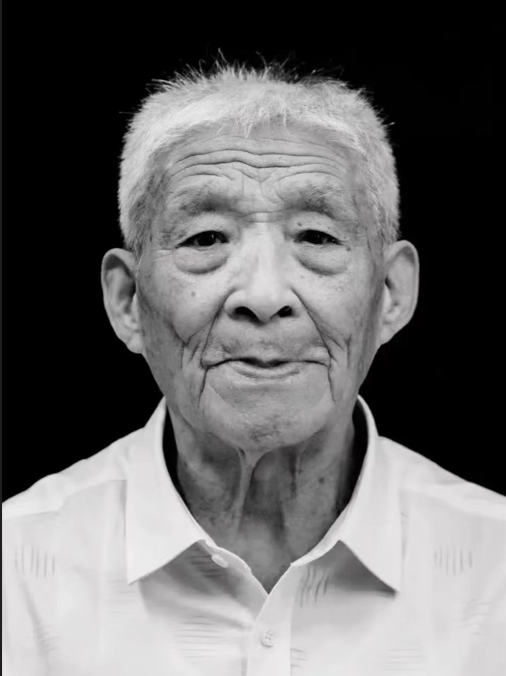
Ma Tinglu was born in Nanjing in March 1934. His family lived at Dahuifu Alley near Qijiawan. His father Ma Yuquan, then 25 or 26, worked in a tea shop. When the Japanese trooped captured Nanjing in 1937, the poor family wasn’t able to flee the city. Ma, together with his grandmother, uncle, parents, great uncle Wen Zhixue and uncle-in-law Yang Shoulin, fled to the refugee camp in Jinling University. The Japanese soldiers searched the city for young men to work for them. They broke into the refugee camp and took his father, great uncle and uncle-in-law, and many others to a big truck, tying them with rope. Ma hid in his grandmother’s arms. They never came back.
“We waited a long time. But my father didn’t return. Laterwe learned that all of them had been killed by the Japanese soldiers. They were shot by machine guns on the waterfront in Xiaguan. The river turned red with blood, and the corpses piled up. After that, the Japanese soldiers poured gasoline on the corpses and set them on fire to cover up the crime,” Ma recalled.
In 1945, after the Japanese government declared its unconditional surrender on August 15, 11-year-old Ma studied at Nanjing Chaotiangong Ethnic Primary School. After graduation, he enrolled at Nanjing No. 3 Middle School. In 1995, 21-year-old Ma went to work in a post and telecommunications office in Xining City, Qinghai Province, in response to a call for supporting development in China’s northwestern regions. He spent five years there.
After returning to Nanjing in 1960, Ma served as director of the neighborhood committee in a community of Dahuifu Alley. Five years later, he was transferred to be secretary of the Youth League general branch in a construction company in Jianye District. He stayed on in the post for more than 20 years and retired in 1987 because of health issues.
On the Tomb-Sweeping Day from 2017 to 2019, Ma attended the activities held by the Memorial Hall. During the Qingming Festival in 2018, the Memorial Hall held an exhibition called “Rebirth·Inheritance — Family Photos of Survivors of the Nanjing Massacre”. The exhibition displayed the family photos of 30 survivors taken in 2017 by local photographers in Nanjing for Xinhua News Agency. That day, Ma stood a long time in front of his family photo.
These years, personnel at the Memorial Hall cared a lot about Ma. The Nanjing Aid Association for the Victims of Atrocities by Japanese Invaders organized for many times the health care service team for survivors of the Nanjing Massacre and medical workers of the Jiangsu Provincial People’s Hospital to visit Ma. They offered him health care services such as measuring his blood pressure.
In March 2022, Ma turned 88. Due to the pandemic, personnel of the Memorial Hall couldn’t visit him in person. On his birthday, they ordered flowers, birthday cake, milk, Nanjing salted duck, and other presents online for him. They also called him to give him their best wishes. This year, Ma left them before they could celebrate his 89th birthday. He passed away on January 2, 2023 at the age of 89. May he rest in peace!
